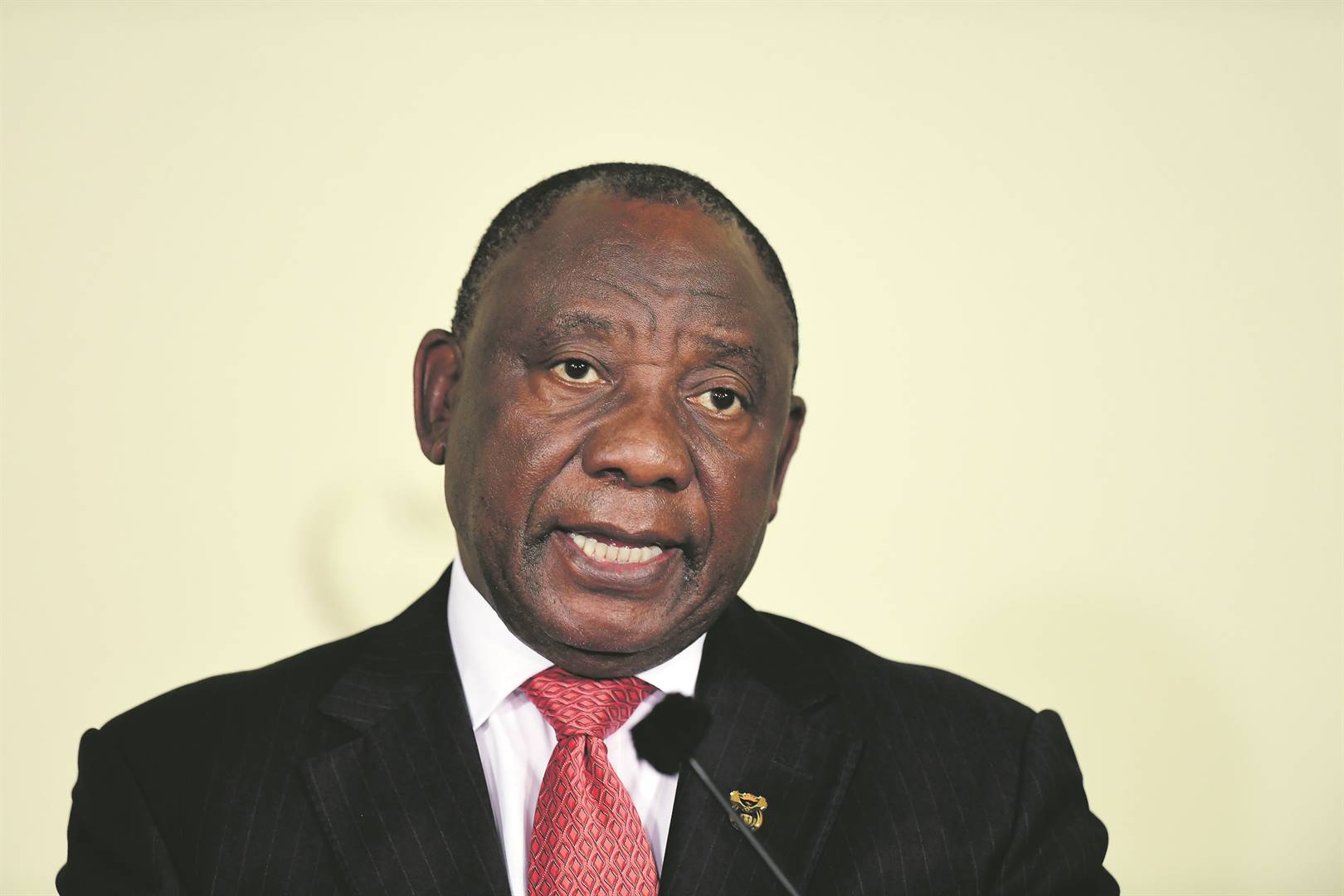
Pres. Cyril Ramaphosa
Multimedia · User Galleries · News in Pictures Send us your pictures · Send us your stories

Pres. Cyril Ramaphosa
Multimedia · User Galleries · News in Pictures Send us your pictures · Send us your stories

The president will use the SONA to drive the message that he is in charge and will not allow experimentation with the SARB. This may help in the short term but won't solve his problems with the ANC, writes Ralph Mathekga.
President Cyril Ramaphosa's State of the Nation Address (SONA) – to be delivered on Thursday – comes at a time when anxiety regarding policy uncertainty in government is quite palpable.
With a 3.2% GDP contraction and business confidence remaining quite low, the president is expected to signal to the market that all will be well soon and there is a plan to sort things out. The president is also confronted with the reality of visibly high unemployment which fuels increasing incidents of protests and other social tensions in society.
Amidst all this, senior ANC leaders have recently been too indulgent in airing policy differences in public, with the party headquarters seemingly singing a different tune from the president of the country.
Since the May 8 election in which the party attained another term to govern, senior ANC members have expressed sharp differences in public regarding the policy direction that government should take. The party's secretary general, Ace Magashule, stated that party deployees should heed the resolution of the party to revisit and extend the mandate of the SA Reserve Bank (SARB) beyond the traditional function of stabilising the currency. Ramaphosa rather maintains that such an endeavour would have to be held back for a while, whilst he focuses on the important work of restoring investor confidence in the economy.
The SARB matter is just one of the areas in relation to which the ANC is struggling to attain a consensus and speak with a single voice. The land question has also divided the ANC almost straight down the middle.
Some within the ANC advocate for a radical approach to land reform, while Ramaphosa and his allies prefer a more circumspect approach whereby the policy is implemented in a way that does not shift South Africa away from orthodox economics.
Amidst open policy differences in the ANC, Ramaphosa is also faced with a Public Protector whose work (seen through various reports) keeps on raising questions about Ramaphosa and his key ally's moral authority to lead. Busisiwe Mkhwebane's findings against Pravin Gordhan in relation to his past decisions at SARS is a thorn in Ramaphosa's side.
Further, the Public Protector has also gunned for the president himself regarding his parliamentary response about the controversial Bosasa donation. The findings by Mkhwebane respectively render Ramaphosa vulnerable to foes within the ANC, who are constantly on the lookout for any blind spot in his leadership and decision making. A morally weakened Ramaphosa would be more willing to compromise with detractors within the ANC; cutting deals as he rolls out his presidency instead of taking a firm position on key issues.
All the above contributes to policy uncertainty. Expectations are that Ramaphosa should use his SONA to clarify government's agenda and assert what exactly will be implemented. Since SONA is a government platform and not an ANC one, Ramaphosa is expected to use his address to brush aside some unfavourable policy comments made by the likes of Magashule in the ANC.
The president will use the SONA to drive the message that he is in charge of the country and will not allow experimentation with the mandate of the reserve bank. This may help in the short term and give the SONA a sense of purpose. What it won't do is address the fact that the ANC decided to go to the elections with a commitment to review the mandate of the SARB, among other controversial proposals by the party.
I do not think Ramaphosa wants to build a reputation as the ANC president who sought to renege on the resolutions adopted by the party.
Therefore, the president cannot dismiss the radicals who maintain that the feel-good approach to policy implementation primarily aimed at appeasing powerful stakeholders in our society would not work. The evidence of choice to support this claim is the continuing high level of inequality in our society and the growing social and economic destitution of many.
The SONA is a yearly platform, and as such may not deal with a complex simmering battle for power within the ANC. The struggle for control of the policy machine of the ANC and the state has become institutionalised to a point whereby the factions stage various attempts to control state institutions that are important in executing and shaping policy.
In this SONA, Ramaphosa will have to balance his concerns about what is happening in the ANC on the one hand and try to drive the message that he is in charge on the other hand. This is a difficult task for the president who is managing multiple competing interest groups within the ANC, society, and the alliance partners.
Therefore, the president needs to deescalate policy tensions within his party by downplaying them whilst coming across as capable of confronting his detractors and putting them in their place.
- Ralph Mathekga is a political analyst and author of When Zuma Goes and Ramaphosa's Turn.
** Want to respond to the columnist? Send your letter or article to voices@news24.com with your name, profile picture, contact details and location. We encourage a diversity of voices and views in our readers' submissions and reserve the right not to publish any and all submissions received.
Disclaimer: News24 encourages freedom of speech and the expression of diverse views.The views of columnists published on News24 are therefore their own and do not necessarily represent the views of News24.